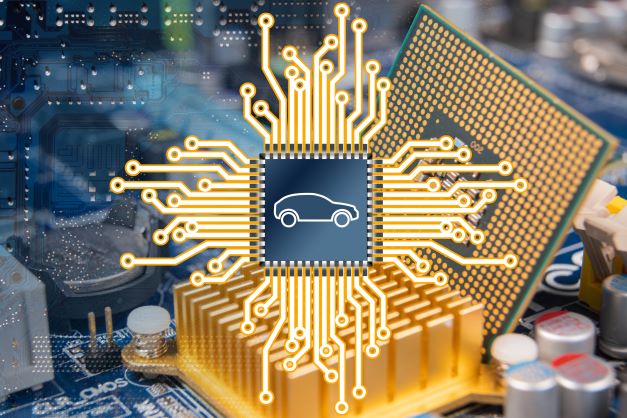
The semiconductor shortage which has plagued the automotive industry for much of the last two years may soon be turned on its head, according to connectivity software and hardware supplier pioneer VNC Automotive, which expects a lack of chips critical for high tech features to suddenly becomes a glut.
It’s ironic that the very situation that triggered the shortage for much of the automotive industry should be driving the recovery, now that it has become reversed due to the prospect of recession,” said CEO Tom Blackie.

Discover B2B Marketing That Performs
Combine business intelligence and editorial excellence to reach engaged professionals across 36 leading media platforms.
Disruptions in the supply chain caused by a series of disasters at critical production plants were compounded by a huge increase in demand for electronic devices as the pandemic took hold and working from home became the default for many.
However, with a global recession on the horizon and a cost of living crisis beginning to bite, consumers have been quick to rein in their spending. Instead of upgrading to the latest smartphone or ordering a new laptop on credit, canny buyers are choosing to hang on to their existing devices for longer.
This fall in demand for consumer goods has freed up production capacity throughout the supply chain, from chip fabs through to logistics, and the automotive industry has been quick to take advantage.
“In fact, such has been the speed of the shift to oversupply that we are regularly approached by chip suppliers asking if we’d like to increase our orders,” said Blackie.
Industry analysts have reported an increase in cancellations from producers of white goods, which are now more technology heavy than ever before, as well manufacturers of more complex devices such as tablets and smartphones.
Vehicles have become ever more sophisticated, connected to a wider digital ecosystem and increasingly defined by their software, and this thirst for computing horsepower has led to a convergence that has seen traditional IT players such as Intel and Nvidia cultivate a key position in the automotive world. This aligning of platforms has also smoothed the path that is now allowing car makers to benefit from a developing oversupply in these high power chips.
“In the past, the auto industry has had a rather adversarial relationship with chip suppliers, always gouging on price and making little in the way of future commitments,” said Blackie. “I think it’s been realised that automakers are small players in comparison to some of the other industries chip fabs are used to working with, and that a new, healthier relationship is called for.”
The automotive industry accounted for less than 9% of semiconductor volumes in 2020, worth an estimated US$38.7bn. However, that was forecast to rise to just over $116bn by 2030 as EV production increased and sophisticated driver assistance features and autonomous vehicles demand ever increasing levels of processing power to accommodate the most advanced AI algorithms. Analysts suggest the average semiconductor content per car will rise from around $712 in 2022 to $931 in 2025.
“It may still take some time for this freer flowing supply to trickle down to car buying consumers, as manufacturers work to clear the backlog that’s accumulated over the last couple of years,” said Blackie. “But in a time of economic gloom, it’s good to find a cloud with a silver lining.”
VNC Automotive technology is currently in use in over 35m vehicles, across 20 of the world’s largest automotive OEMs, including VW Group, Toyota, Honda, PSA. It develops and supplies software to equipment suppliers such as Bosch, Panasonic, Clarion, Pioneer and device vendors such as Sony, HTC, LG, and Huawei.






